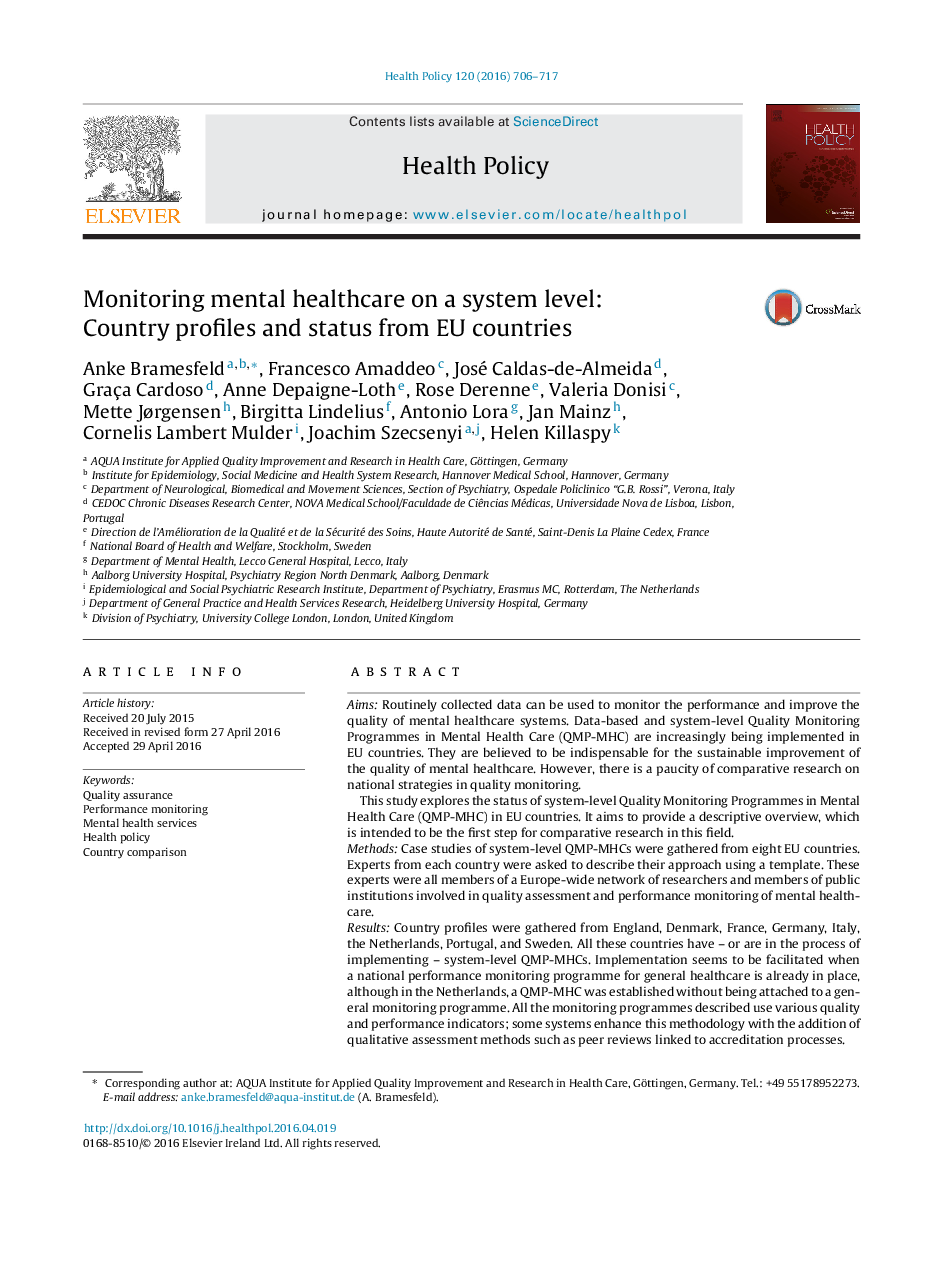| Article ID | Journal | Published Year | Pages | File Type |
|---|---|---|---|---|
| 6238957 | Health Policy | 2016 | 12 Pages |
â¢System level quality monitoring in mental healthcare (QM-MHC) is important for improving care and transparency.â¢It is available in some EU-health systems, while others are in the process of developing and implementing it.â¢QM-MHC is mostly implemented as part of national quality monitoring in healthcare in general.â¢Within QM-MHC feedback loops and improvement mechanisms seem to be the parts that are the least well implemented.
AimsRoutinely collected data can be used to monitor the performance and improve the quality of mental healthcare systems. Data-based and system-level Quality Monitoring Programmes in Mental Health Care (QMP-MHC) are increasingly being implemented in EU countries. They are believed to be indispensable for the sustainable improvement of the quality of mental healthcare. However, there is a paucity of comparative research on national strategies in quality monitoring.This study explores the status of system-level Quality Monitoring Programmes in Mental Health Care (QMP-MHC) in EU countries. It aims to provide a descriptive overview, which is intended to be the first step for comparative research in this field.MethodsCase studies of system-level QMP-MHCs were gathered from eight EU countries. Experts from each country were asked to describe their approach using a template. These experts were all members of a Europe-wide network of researchers and members of public institutions involved in quality assessment and performance monitoring of mental healthcare.ResultsCountry profiles were gathered from England, Denmark, France, Germany, Italy, the Netherlands, Portugal, and Sweden. All these countries have - or are in the process of implementing - system-level QMP-MHCs. Implementation seems to be facilitated when a national performance monitoring programme for general healthcare is already in place, although in the Netherlands, a QMP-MHC was established without being attached to a general monitoring programme. All the monitoring programmes described use various quality and performance indicators; some systems enhance this methodology with the addition of qualitative assessment methods such as peer reviews linked to accreditation processes.ConclusionsResearch is needed to better understand the historical, political and technical backgrounds of the different national cases and to explore the effectiveness of different improvement mechanisms on the actual quality of healthcare. Policy makers and those designing performance measurement programmes are recommended to look across the borders of their own healthcare systems as there are many ways to assess performance and many ways to feedback results to service providers. No evidence is available whether one of these methods is superior to the others in improving the quality of mental healthcare.
